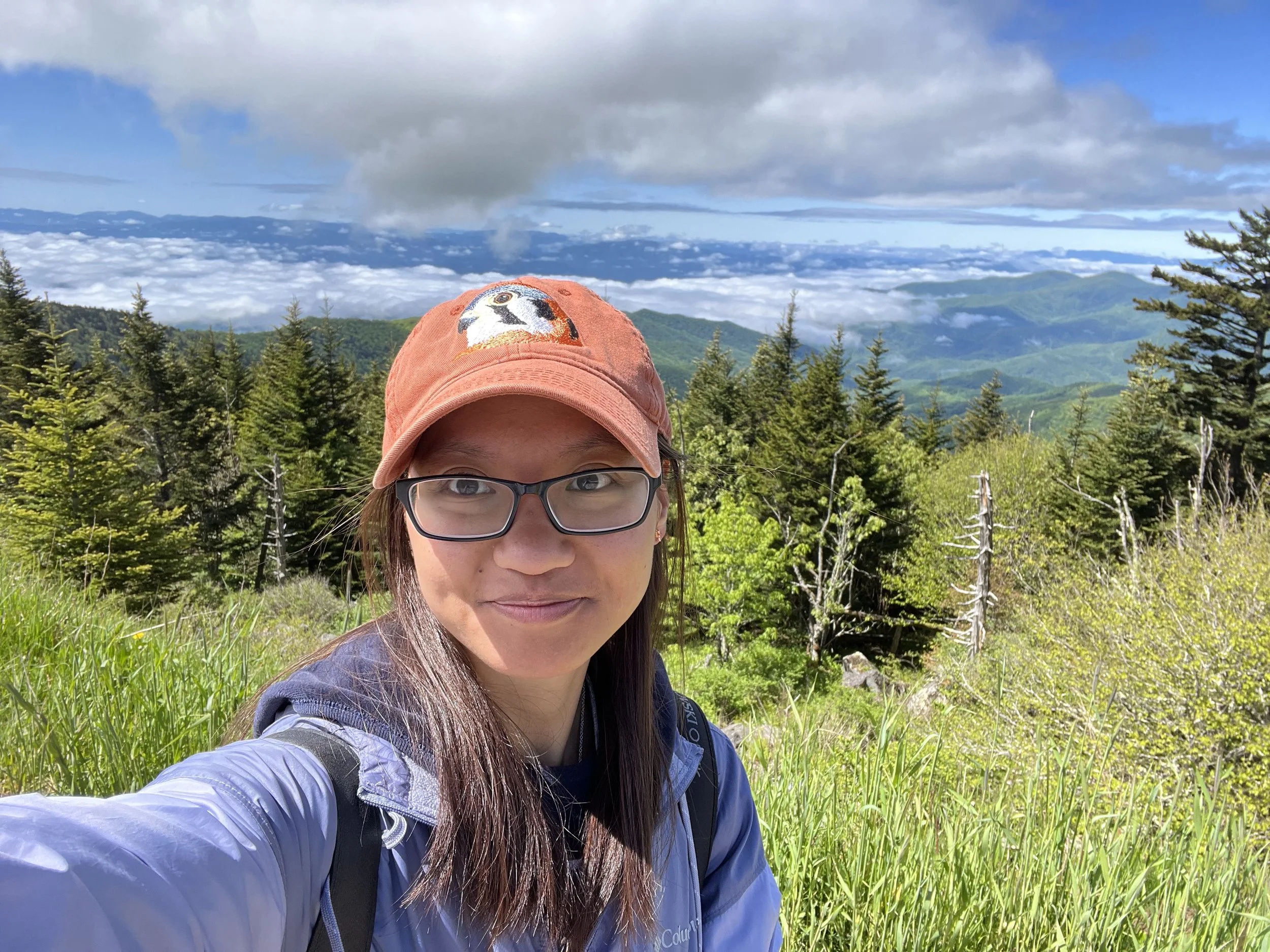Current Graduate Students
María José (Majo) Navarrete-Méndez (2020-present, PhD candidate at UC Berkeley)
I am a naturalist by passion, a conservationist by conviction, and a biologist by a complex mixture of curiosity, hard work, and chance. My scientific interests focus on the study of amphibians and reptiles. I am interested in studying the genetic and environmental mechanisms underlying the evolution of novel traits which characterize instances of phenotypic diversification and convergence. Particularly, I focus on the evolution of chemical defenses in amphibians. I would like to study the symbiotic conversations between TTX producing-bacteria and amphibians including but not limited to frogs of the genus Atelopus and Brachycephalus and newts of the genus Taricha. I am also interested in studying the biogeography of Andean frogs and the Systematics and taxonomy of Pristimantis. Along with my professional aspirations, I am committed to protecting biological richness through science, empowering indigenous communities and women through conservation, and fostering gender equality in academia. Outside of the lab, I enjoy climbing mountains and dancing. Also, I love singing while looking for frogs and reptiles during fieldwork.
Contact: mnavarrete [at] berkeley [dot] edu
Kannon Pearson (2021-present, PhD candidate at UC Berkeley)
I am fascinated by the ways in which toxins mediate organism-level interactions, and how pressures on the interacting partners are subsequently reflected in the occurrence and quantities of these chemicals. In particular, I am interested in the relationships between poisonous amphibians and the skin-associated bacteria which supply or modify their toxins. My dissertation focuses on Pacific newts (Taricha), which are defended by tetrodotoxin – a neurotoxin famously also found in pufferfish. I apply host-microbiome metatranscriptomics to explore how newts start accumulating tetrodotoxin during metamorphosis and how adult newts regulate their toxicity. Additionally, I am working with scientists at the Bureau of Land Management to investigate gene flow between Taricha species and develop a new set of diagnostic characters for telling them apart!
I am passionate about animal welfare and seek to use and refine methodologies in my research that minimize animal sacrifice and maximize the value of specimens that I do collect. I also try to advocate for increased inclusion in herpetology, in particular for LGBTQ+ folks. You can watch my talk on the intersection of herpetology and queer internet culture at this link!
Outside of working hours, I enjoy cooking, sketching, playing Magic the Gathering, and volunteering with friends to prepare bird specimens in the Museum of Vertebrate Zoology prep lab.
Contact: kannonpearson [at] berkeley [dot] edu
Mylena Masache (2024-present, MS student in Ecuador)
Since I was a child, I have had a deep interest in learning more about the biodiversity that surrounds me. During my degree, I discovered my passion for amphibians and reptiles and decided to dedicate myself to studying them. My research interests focus on the reproductive behavior of two species of poison frogs, E. tricolor and E. machalilla, which live in parapatric areas, which opens up the possibility that they are hybridizing in nature. Animal behavior has always seemed fascinating to me, and in the case of amphibians, understanding it is key to their conservation. I am also passionate about the systematics and taxonomy of Neotropical amphibians, a region with amazing biodiversity and still full of secrets to discover. Outside of the lab, I enjoy photography, reading, and writing poetry, activities that allow me to disconnect and explore other facets of my life.
Mylena is based at Pontificia Universidad Católica del Ecuador in Quito, Ecuador under the co-supervision of Santiago Ron.
Contact: mvmasache [at] puce [dot] edu [dot] ec
Frederic Griesbaum (2024-present, PhD student in Germany)
Ever since I was a small child, I have been particularly fascinated by amphibians and reptiles, even though I am generally interested in all animals. Following my dream of becoming a naturalist, I studied biology in Berlin, where I have lived since 2014. After working ecologically and taxonomically during my studies, in my PhD project, I am now working on convergent evolution in frogs, a topic that has fascinated me for years. Therefore, I will investigate different characteristics of anurans and the ecological drivers of their evolution. The project is based at museum of natural history in Berlin and is co-supervised by Mark-Oliver Rödel.
In addition to my research activities, I have been working in environmental education for several years, both at the museum and as a freelance nature guide. I am also passionate about photography and left-wing politics.
Contact: frederic.griesbaum [at] mfn [dot] berlin
Ziting Chen (2025-present, PhD student at UC Berkeley)
I received my B.S. in animal science from UC Davis in 2020 and an M.S. in animal science from the University of Illinois at Urbana-Champaign in 2022, where I studied reproductive physiology. Since then, I have worked as a lab technician in pharmaceutical sciences at the University of Michigan, where my research focused on pulmonary infections. My background in animal science and pharmacy brought me interest in understanding natural history and underlying physiological mechanisms in wildlife species. Outside of lab, I enjoy birdwatching, hiking, and visiting zoos and museums.
Contact: ziting97 [at] berkeley [dot] edu




